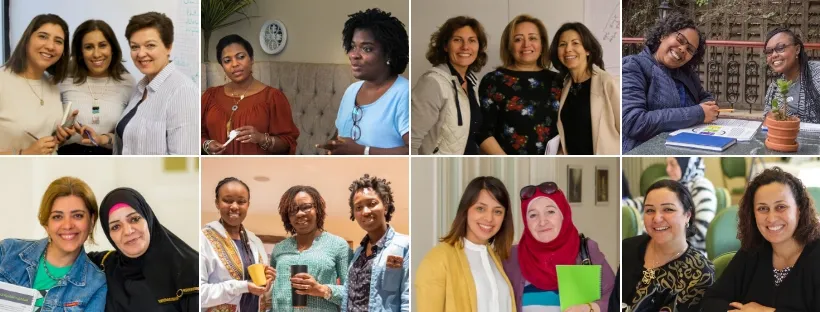
#EmpoweringWomen is one of the most prominent hashtags and statements today and rightly so. Globally, women have been dealt the short end of the stick across most sectors and facets of life, from leadership to salary equality to basic human rights. As a result, gender equality and women’s empowerment has been formalised and highlighted as one of the sustainable development goals aimed at transforming the world by the year 2030; SDG 5.
“Did you know that only a third of startups founded by women in Tunisia will survive compared to over two-thirds of those by men? The Women Entrepreneurship: priorities and opportunities between regional and national report highlights that only 30 percent of startups founded by women will success a stark comparison to the 70 percent survival rate of male founded enterprises.”
(Source: Wes Rapport de Synthese — Tunisie 2017 — Chema Gargouri)
The tagline empowering women can easily be misinterpreted as one that seeks to rescue women which couldn’t be further from the truth. We see empowering women as the need to equally provide the same space for women to thrive and live fulfilling lives that allow them to live to their potential and equally contribute toward the economic and social development of their communities. While many will argue that women enjoy the same rights as men; this article from the Economist magazine highlights 104 countries that reserve certain jobs to men only. In addition, there are numerous unspoken societal and cultural rules, traditional roles, glass ceilings and discriminatory practices that still linger to date, and these norms create internal interferences (fears, limiting beliefs and insecurities) that restrict girls and women from actively living up to their potential. With regards to the external interferences, across the Middle East and Africa, women find it harder to own land or register businesses or get business loans without the approval of a male or without collateral, which they are not able to legally own. With such practices, it’s no wonder that the empowerment of women is a hot topic that needs urgent intervention.
To date, Mowgli has introduced and empowered over 1,000 women through mentoring programs. Collaboration and partnerships are at the core of ensuring that we meet SDG 5, inline with this, we’re currently working with a number of organisations and funders ranging from the European Union to the European Bank for Reconstruction and Development (EBRD) to the Austrian Development Bank/SANAD TAF and Safaricom PLC to transform the lives of women across the Middle East and Africa, through 360 degree mentoring which provides holistic support covering both personal and professional development.
In Tunisia, we’re working with the European Bank for Reconstruction and Development (EBRD)to address gender gaps through the EU funded, Programme d’Appui à la Compétitivité des Services (PACS Programme) Women in Business (WiB) Mentoring Program. This program is aimed at supporting women-led enterprises to develop into sustainable and scalable businesses that will positively contribute towards the country’s economy and lead to job creation.
In Jordan, together with our partners the SANAD Technical Assistance Facility (SANAD TAF)which is funded by the Oesterreichische Entwicklungsbank (OeEB) we are tackling gender equality by empowering refugee micro entrepreneurs, 85% of whom are women, to economically empower them to drive job creation and social development within their communities and host country, and as a result encourage refugee-host community dialogue.
“The program is one of my most treasured learning experiences. I have learnt how to utilize my business skills in a way that supports the person I am mentoring. Meeting women refugees was a unique and humbling experience, which taught me how resilient the human spirit is. A short program, yet the Mowgli Facilitators did an excellent job, and were successful in raising quickly the spirits of all who joined into one of trust and camaraderie.”
Wael Al Tabba, Mentor, SANAD TAF Mowgli Mentoring Program

In Kenya, we recently kicked off a pioneering mentoring program which is supporting the largest telecommunications company in East and Central Africa, Safaricom PLC, to increase female representation within its management by 50% by 2030 by strengthening its female leaders across all levels of the organisation.
“When we invest in women, we invest in everybody else.”
Melinda Gates
What’s the return on investing in women?
In Kenya, the Women’s Enterprise Fund has a repayment rate of 94%. In other parts of the world, various studies show that whilst female founders generally secure less investment, they generate more revenues, in fact more than double the investment, making female founded enterprises a more lucrative investment for financial backers. However, financially investing in women owned and led businesses, or their development as strong, resilient leaders is only addressing a portion of the need. To truly develop their human capital and sustainably empower them to identify, reflect upon and unlock their potential, we need to see a greater investment in areas such as structured 360 degree mentoring, which supports both their professional and personal growth.
We can no longer ignore the fact and consequences of the personal internal interferences when talking about #empoweringwomen.